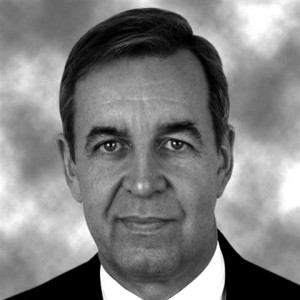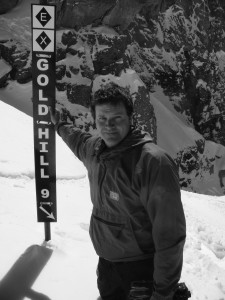Alumni can seem like an invisible force to UR undergraduates. They donate, they network and, once a year, they take over campus for Meliora Weekend. They were obviously once students too, and many lead rich lives that can be traced back to their start at UR. The following alumni have found success in different fields, following different paths. Although they graduated decades ago, the alumni’s experiences and job advice resonate with students today.
GWEN GREENE ’65
FRENCH LITERATURE
To simply say Gwen Greene ’65 is involved in University life would be unfair.
A vice president at JP Morgan Chase Securities, the New Yorker is a UR Board of Trustees member, sits on several University committees, endowed a scholarship and mentors students seeking jobs on Wall Street. Not to mention that Greene gardens, runs a Hudson County farm and manages her husband’s art career.
Greene’s many roles in the University converge this coming Meliora Weekend. She is running around campus attending Board of Trustees meetings, speaking with students and presenting at events. Throughout the year, Greene remains equally involved — sometimes she sends many e-mails a day to keep track of UR’s aspiring business students.
What might be most impressive is Greene’s ability to reference the students she’s helped by name and where they work.
“I like to think I created or helped create this huge network of UR graduates on Wall Street who will help each other,” she said.
Greene didn’t have the same opportunity when she first entered the job market in 1965. Entering with a Bachelor of Arts in French Literature, Greene found a job as a credit reporter during a time in which women weren’t typically in business. She changed her career many times, working in politics, news and business, before realizing her talent for sales.
She credits her experiences at UR — which included drafting a constitution for the newly built Towers residences — for giving her the confidence to try the unexpected.
“What UR did was it gave me an incredible sense that I could do anything I set my mind to,” Greene said. “I think I graduated with a feeling of confidence in my own abilities to navigate the world.”
Her gratitude also stems from the financial support she received as a student who couldn’t afford college without loans and a scholarship — gratitude that inspired her to endow a new scholarship.
Of her many roles at UR, Greene has a particular passion for fundraising.
“I’m one of those weird people who loves fundraising,” Greene said. “You know the cause is just. It’s not something most people are comfortable doing. So I understood it was a matter of ability and enthusiasm meeting a need.”
One of her most time-consuming activities is helping current UR undergraduates and business school students find their dream jobs on Wall Street. Her advice for anyone wanting to work in business is to network, of course, but also to remain persistent.
“[The persistent] will get jobs,” she said. “It’s hard … but I have never seen a student not get a job who really, really wants one. They may have to go through a back door, and they may have to go to a firm that’s not their first choice.
They may have to go to a small city in another part of the country, but they will succeed if they have the drive. That’s what Wall Street wants, they want students who want it desperately.”
JOHN MAJOR ’67
MECHANICAL AND AEROSPACE ENGINEERING
John Major ’67, who will be moderating a sold-out panel on networking this Saturday, has certainly mastered the art of building and maintaining connections. He requires a file to keep track of his investments in 20 companies and work in 10 charities and the Hajim School of Engineering and Applied Science Dean’s Advisory Committee is another activity on his lengthy resume.
His philosophy is that if you’re going to be involved, you might as well be thoroughly involved.
Major has a Bachelor of Science in mechanical and aerospace engineering and graduate degrees from several programs. In his industry, wireless technology, there is tremendous demand to remain current. He is the current chairman of Broadcom, an innovator in wireless communications.
To prevent from falling behind, he must constantly read, study, and, most importantly, network.
Most would think technology changes too rapidly for industry workers to always be ready for what’s coming. But Major claims there’s nothing out there that hasn’t been around for several years. Knowing what is ahead requires knowing people.
“You can definitely see it coming,” Major said. “You have to have the friends and curiosity to remain current.”
Networking is a tool Major fears students undervalue in career building. He says he has only experienced a couple of times in which someone responded negatively to his or others’ outreach.
One overlooked networking channel, apparently, is parent connections.
“That’s just criminal,” he said of parents that neglect this opportunity. “That’s not fair. Everyone loses on the investment.”
Saturday’s lecture is “Networking in the Digital Age.” While Major acknowledges the new opportunities the Internet allows, personal connections always remain paramount.
GREG CRAIG ’83
ECONOMICS AND POLITICAL SCIENCE
Greg Craig ’83 helped grow a training company into a large-scale publisher of computer training materials while he was still fresh out of college. Yet the political science and economics major had no formal education in computers and limited education in business. More than once, Craig took his education into his own hands at UR.
“I had an economics and political science degree but also spent an awful lot of time at the end of my senior year sort of hiding out in the Business School Library and reading everything I could about business,” Craig said.
Craig taught himself programming in high school well before computers were widespread. He capitalized on the opportunity, thinking that small computers would have a good future in spite of some skeptics.
Obviously, Craig was right.
“It seemed to me that people at that point were not taking the small computer very seriously but I thought there was going to be a good future in it,” he said.
After graduation, Craig joined two Rochester Institute of Technology professors to launch Logical Operations, one of the first computer training centers for PC software. During Craig’s 13 years, the company grew into the largest publisher of training software in the field.
Craig taught Logical Operations classes, and oversaw more of the company’s logistics as the business grew. He did everything from coffee runs and teaching classes, to running its finances and administration.
“Despite the fact that I made it out in business, [my majors] gave me an incredible set of skills for approaching problems and working with larger groups of people,” he said. “It turned out to be very practical although much was theoretical.”
Another skillset surprisingly useful to him in his career was his writing skills.
“One of the most valuable things I did was take writing classes,” Craig said. “I was shocked when I went into the workforce, when I was running things, at the number of people who worked for us who couldn’t write very well.”
Craig later left Logical Operations, and after several years — he helped launch a new project, InterActive Workplace in the late ’90s. This time Craig stood at the brink of a second technological wave: the Internet bubble. His second company was acquired after a year, earning Craig a substantial return on his 12-to-14-hour workdays, and he left shortly after.
Today Craig sits on the Board of Directors for various organizations, including the Gill Foundation, the largest funder of the GLBT-movement. A long-time snowboarder, Craig today lives minutes away from a ski lift in Colorado.
Leber is a member of the class of 2011.




